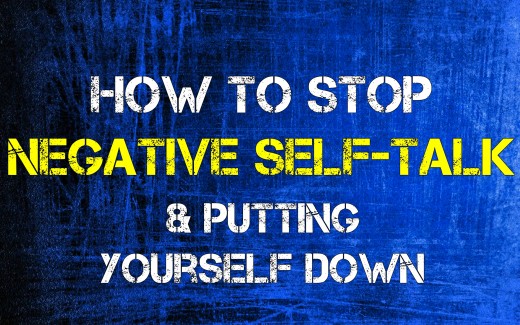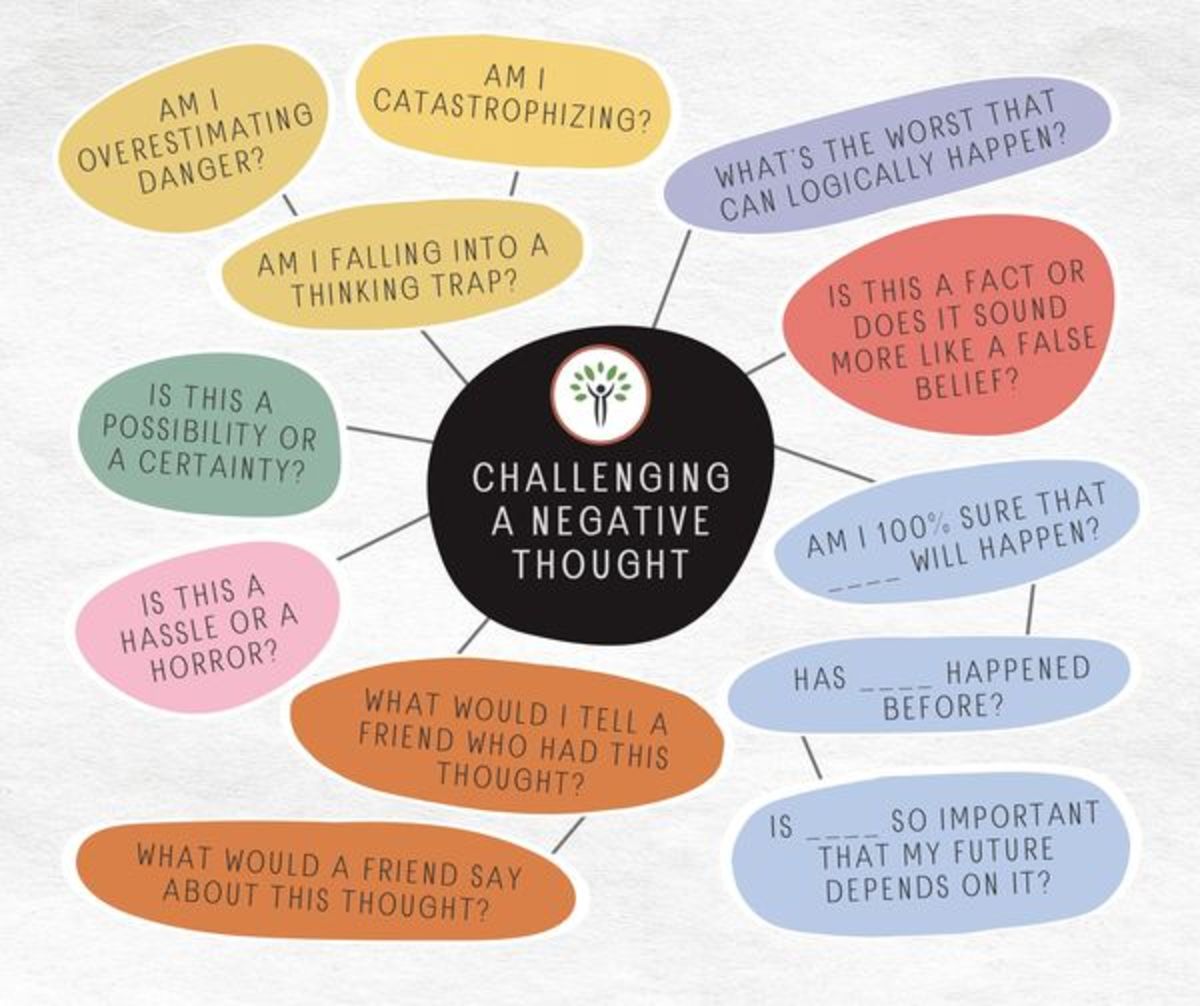- HubPages»
- Health»
- Mental Health»
- Emotions
How to Stop Negative Self-Talk & Putting Yourself Down

Negative self-talk is something a lot of people deal with, but many don't even realize they're doing it. It's sort of become an ingrained thing. A habit, basically. This is why people have the same negative thoughts all the time. It's just a habit, not the truth. Luckily, it's not a permanent thing. A lot of times all it takes is awareness of the situation and the power it has over you is greatly reduced. This is something narcissists have a lot of trouble with. They have immense trouble defeating negative self-talk.
The overall concept here is not really so much about positive thinking, per se, but more about not letting your negative self-talk defeat you. Negative self-talk is often caused by low self-esteem. It also reinforces low self-esteem, so it becomes a vicious cycle that can be difficult to break because so many people don't realize they are even doing it.
For example, when a mistake is made - even a small or unimportant one - many people will berate themselves for this. They will say things to themselves like, "Oh, you're so stupid!" or "Geez, could you be any more clumsy?" This type of negative self-talk can be pretty damaging to your self-esteem. So much of who and what we are depends on our thoughts, and if your thoughts are so negative, it's kind of hard to be happy or feel good about anything. It also often starts a snowball effect, where one small mistake suddenly results in a mental recitation of every flaw and every thing a person ever did wrong. This kind of thing really serves no purpose, other than to make you feel bad about yourself. You can't grow or learn in that state of mind. It's not helpful or productive, and hopefully one of your new goals is not to engage in behaviors that aren't helpful or productive anymore.
So much effort goes into negative self-talk, effort that could be used for much more productive things. So how do you know if what you are saying is too negative? A good rule of thumb is, "If you wouldn't say it to a friend, don't say it to yourself." This sounds silly, but think about it for a second. Would you look at a friend and say, "Holy cow, you are so fat!" Of course not. So why say it to yourself? Most people wouldn't even say something like that to someone they hated. You probably don't hate yourself, so let's lighten it up a little. Be your own friend. You deserve the same love and kindness from yourself that you give to other people. By that same token, if a friend were saying these things, would you agree? If a friend said, "Oh my goodness, I accidentally put a red sock in with my white laundry, I'm so stupid!" would you say, "Yeah, you really are an idiot!" Of course not. You'd say, "Oh, it isn't that big of a deal and it was just an accident. Don't worry about it."
Another kind of negative talk is saying the kind of things to yourself that, while not necessarily insulting or abusive, are negative and make it very hard to be happy or successful. These would be things like, "Oh, this is going to be a terrible day" or "This is never going to work out" or "That's never going to happen." These kinds of things are self-defeating and serve no purpose except to make you feel defeated. Worse, they have set the scene before it even happens. It can create a situation where people have sabotaged themselves before they've even started. It's hard to feel - or be - successful with that kind of inner landscape. Our thoughts really do create our reality. This isn't just New Age mumbo jumbo, or magical thinking. Our perception shapes our experience and if our thoughts are negative, our perceptions of experiences will be, too. Instead of focusing on the positive aspects of things, which is much more productive, we end up focusing on the negative aspects of things or obsessing over some flaw or mistake of ours that others may not have even noticed. It's like that saying: We can be sad that rose bushes have thorns or we can be happy that thorn bushes have roses. The bush has not changed. Only the way you see it has. It really is all in how you look at it.
There are a few ways to combat negative self-talk. The first thing to do would be maybe to write out some of your thoughts. The more you focus and pay attention, the more negative thoughts you will probably notice, and you may be very surprised by how many of them are not only negative but exagerrated, distorted or just plain not true. Once you have pinpointed the negative thoughts, you can start assessing them. Are your thoughts factual? Are you jumping to conclusions? Is there maybe another way to look at the situation that you hadn't thought of? Is the situation really as bad as you think it is? By challenging your negative thoughts, you test their accuracy. You will often find that they are in fact not accurate, or that the situation is not as bad as you thought it was. Doing this can help you stop negative self-talk in its tracks because many times the only reason it has such a foothold in your mind is because it was an unnoticed habit.
That's why even after you've identified and challenged your negative thinking, you may still find yourself doing it. Habits are hard to break! The best way to change this is to change the way you're reacting to things. Instead of having an emotional reaction, focus on having a factual one instead. So instead of saying to yourself, "Oh my God, I put a red sock in with the white clothes and now they're all pink! I'm so stupid!" you can say, "Well, I made a mistake but I know not to do that again. Next time I will be more careful sorting the clothes." Responding to situations this way cuts off the emotional reaction and forces you to look at things more factually, which gives you clearer perception - both of the event and the severity of it. Is a mistake with the laundry really an indictment of your character? Of course not. It's just a reaction, it's not reality. With a little practice, you can stop reacting like that. As listeners of this show know, not reacting emotionally to things can be difficult at first but it's 100% possible and gets easier over time. Reacting emotionally is, in it's own way, just as much of a habit as anything else we as human beings do, and habits can be broken.
The key to defeating self-talk is to remember that you are not your thoughts. You are not your feelings. These things are not reality or some unimpeachable truth. They're just thoughts. They're just feelings. They don't define you, and they don't control you. A lot of times, they're just habit. With a little bit of practice, you can control them and then your mind will be working for you, not against you.








